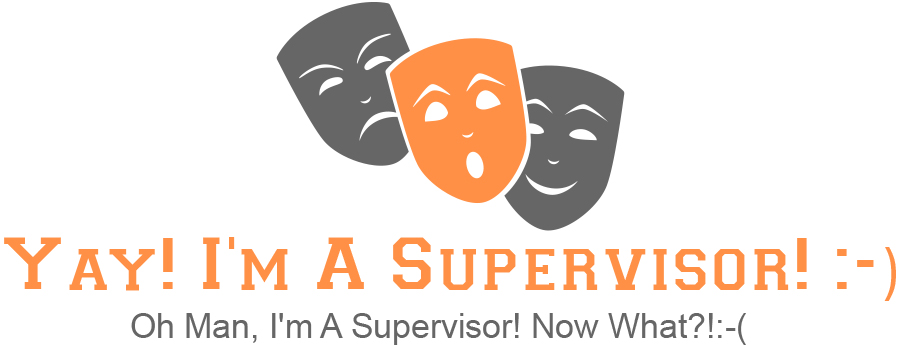This program can be presented as a keynote on management skills, as a 2-day workshop for companies, or in its entirety as 12 on-site programs. This program has reduced turnover, increased performance, and generated a positive ROI for the companies who have participated in it. The topics covered are...
- Generations and Leadership: There are 2 foundational topics in the program. Both of these are covered in the first session. With the significant generational shifts that we have experienced in the workplace since 2008, the values of work itself have shifted. Six years into a generational cycle at work (6 years after the first cohort of a generation begins working full-time), we see a shift in the value structure of work itself. In 2008, the Millennial Generation hit that mark and the workplace felt the impact of that change. As of February of 2016, the Millennial Generation comprised the majority of the workforce and for the first time, the Baby Boomers exited in mass. In this foundational program, you will learn about "Value-Based Diversity" and how the world has shifted with the changing of leadership. You will also learn the fundamental differences between managing a workforce and leading a workforce, as defined by Peter Drucker.
- Employee Motivation: In the second course, you will learn the science behind what motivates a person as well as the tactical approach to generating a motivational environment. The simple reality is that motivation is an internal construct. It is about understanding the manner in which we engage a person's mind and their emotions in order to get them to want to do what you, their manager, wants them to do. Motivation is not about carrots and sticks. In fact, the research shows that the "If/Then" statements for motivation actually have a negative impact on performance. Once a manager masters the correct tactics of success, they can consistently generate higher levels of commitment, engagement, and ultimately performance.
- Authentic Communication: Communication is not just about sending messages to others, although that is an important component of it. Communication is rooted in one's view of who other people are and whether we are able to approach them with acceptance instead of judgment. Communication is our ability to correctly read who another person is, adapt to the needs of that person, engage their emotions and intellect, and then exchange ideas and information. It is about setting clear expectations and managing those expectations. It is about listening, which makes up a larger portion of leadership communication than any other aspect. It is about creating the right verbal and non-verbal flow with others. Harvard says that 85% of all problems in the workplace relate to poor communication. This topic alone can help to reduce turnover, improve morale, and enhance employee performance. Taught in the stacked learning model of this series, it is incredibly powerful for changing hearts and minds!
- Coaching: Coaching is the day-in, day-out, never-ending process of staying fully engaged with our people, understanding the nuances of who they are, setting clear expectations, and managing outcomes. Within the workplace, one's ability to coach determines the amount of corrective action that will have to be taken. The coaching program teaches managers how to effectively monitor employee behavior and generate the desire in your employees to be pulled in the right direction for success. A great coach takes ordinary people (60% of the typical workforce) and turns them into superstars. Coaching matters because it can impact the bottom-line profits by as much as 20% even without changing your gross revenue numbers.
- Conflict Resolution: Conflict resolution is the 5 step process of correcting behavioral patterns in employees. It is absolutely required for making good decisions. It is critical for generating ideas that will work. It is what great managers and great leaders do in order to build greater levels of trust in their teams and create absolute commitment towards a goal. Many people think of conflict resolution as scary, bad, and win/lose. When the right model is not followed, that is exactly what you get... the wrong result. However, when the formula is applied, you build consensus, trust, agreement, openness, and success!
- Corrective Counseling and Behavior Change: There are people that are simply not on board with accomplishing what is desired by the organization and/or leadership. Corrective Counseling is about digging deeper into the psyche of a person and learning how to generate positive desire even in those who are bucking the system. When mistakes are made, and they often are, this 3-question model creates ownership in the mind of the employee of their behaviors. Fundamental Attribution is the process that every human mind follows to explain the "why" of their behaviors. If we simply ask "why," we will not get the right answer from them, nor will we get change. Knowing the right 3 questions to ask as well as the framework for changing the perspective of a person determines whether or not they will ultimately change in the right direction.
- Goal Setting and Tracking: One of the great challenges in setting and achieving goals with our employees, centers around the manner in which the goals are created as well as how they are tracked throughout the year. Only 3% of people set goals in the right manner. Those 3% control almost 90% of the monies of the country. The on T.A.R.G.E.T. model of goal setting is based on the achievement and tracking strategies of the best performers in the country. This model is simple to implement with our teams and has a significant impact on the profitability and growth of our organizations.
- Problem Solving: Complex problems have simple, easy to understand, wrong answers. Most managers and leaders try to solve problems by simply coming up with solutions. They skip over the critical precursor steps that determine whether or not the right definition of the desired outcome is in place, as well as the right information is in place for pursuing a new outcome. By creating a structured framework for solving problems, we are able to create predictable and positive results consistently. By following this model, we are able to eliminate the emotional upset that often comes with one person getting their solution implemented and another not. This framework can take even the most complex of problems and map out the subsets within the problem, create workable solutions, and map the success of the solution. Without this framework, problems often have solutions thrown at the symptoms instead of the root cause, resulting in the need to solve the same problem over and over again.
- GroupThink: As decisions are being made and the proper understanding and approach are not in place, 7 symptoms of bad decision-making will begin to appear. These symptoms create a negative result known as "groupthink." By understanding the manner in which decisions should be framed as well as in following the right models for meetings, teams can reduce the required time for making great decisions and create consistently positive outcomes. By managing their meetings in the right models and by mapping out meetings to be structured for specific outcomes, groupthink can be eliminated, meeting times can be drastically reduced, and outcomes can be managed more effectively.
- Priority Management: Time is a finite resource, and as such, cannot be managed. Success is not about managing the time that we have. It is about managing what goes into our time. Priority management provides the framework for understanding essentialism related to success. By understanding what takes up our time, and then following the mapping model of relevance, we are able to determine what we will allow into our time and what we will prevent from taking up our time. Participants learn how to quickly evaluate the importance of a matter and appropriately place it in the queue or eliminate it. Controlling what goes into one's time is often the determining factor in their personal success or their utter frustration.
- Building High-Performance Teams: Patrick Lencioni in his book, The Five Dysfunctions Of A Team, outlines the characteristics that hold a team back, with the lack of trust being the base of the dysfunction pyramid. By understanding both what makes a team work and what can prevent a team from working, we are better able to create the forward momentum that we desire Bruce Tuckman postulated that teams are formed, they then go through a storming process (learning to have good conflict), then they normalize (map out a way for each person to function in their area of brilliance), and finally they perform (function at their individual and collective peak levels of performance). This program teaches participants how to take all of the courses that they have gone through and tie them directly into the process of team management. The outcome is a team that moves quickly through the stages of success into top performance. The struggle is that close to 80% of organizations function at the storming stage of the process and have not built the foundation required (previous course knowledge) to move to top performance. A top performing team will produce 20 times the net profits of an average team! That is HUGE!
- Ethics - Values - Culture: The ONE THING that is needed to tie everything together in this process is the understanding and tactics of how to operate in an ethical process, building on core values, and focusing on the culture of the organization. Benjamin Disraeli once said, "If you have ethics nothing else matters. If you don't have ethics nothing else matters." The "why" of an organization determines the "how" of the organization. By understanding the why, we are able to create the right how of achieving success. In the end, what we do (our product or service) can only be positive and impactful if we have a strong enough why. The culture that is created is based on mastering the skills that have been taught throughout this series. By mastering and applying these skills, the right culture is created for success. These courses have been able to develop skills in managers that have reduced turnover by 50% and more in the first year, increased profits by up to 500 times the investment in the courses, and reduced stress for the managers and leaders. When the right foundational skills and strategies are developed in your leaders, they have a better life at work as well as outside of work!



